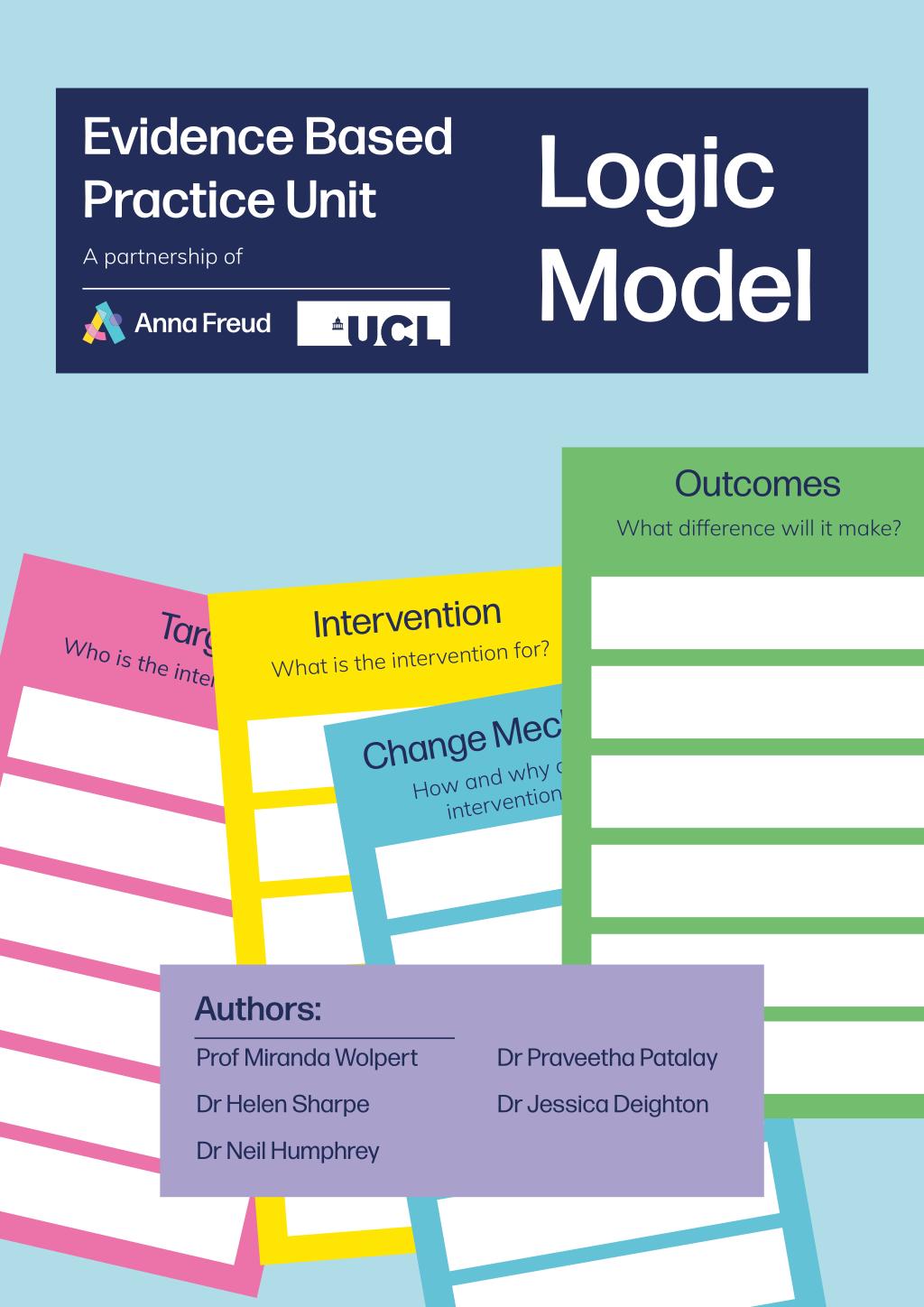Evidence Based Practice Unit (EBPU)
Founded in 2006, the Evidence Based Practice Unit is a partnership of Anna Freud and the UCL Faculty of Brain Sciences. The unit is co-led by Professor Jess Deighton and Professor Julian Edbrooke-Childs.
The Evidence Based Practice Unit bridges cutting-edge research and innovative practice in children’s mental health. Our vision is for all children and young people's wellbeing support to be informed by real-world evidence so that every child thrives. We conduct research, develop tools, provides training, evaluate interventions and disseminate evidence across four themes: risk, resilience, change and choice.
Our work spans a wide range of areas within children and young people’s mental health. This includes designing and evaluating digital mental health tools; collecting and analysing longitudinal data, both qualitative and quantitative, to understand change over time in young people’s wellbeing; supporting schools and colleges to carry out wellbeing surveys; and investigating mental health and wellbeing programmes in a variety of settings including education settings, community settings and specialist services.
Equity, diversity and inclusion are key to our research strategy and we aim to unpack the best ways to support the mental health of young people with marginalised identities, who may experience a combination of structural and social inequalities.
-
Research library
This page is currently being developed, we apologise if things don't look quite right. Anna Freud’s online research library contains a collection of evidence-based material on children a...
-
Current research projects
Anna Freud, led by our research units, is involved in a number of ongoing research studies.
-
The HeadStart Learning Programme
The Evidence Based Practice Unit leads the national evaluation of HeadStart. Together with our partners, we evaluate and share learning from the HeadStart programme.
-
Education for wellbeing
Explore Education for Wellbeing, England's major mental health intervention trial in schools. Backed by the Department for Education, we assess innovative approaches with Anna Freud, gau...

Evidence Based Practice Unit logic model
Gaining conceptual clarity on the logic underpinning complex interventions is a key priority in child mental health and beyond. Several approaches for producing logic models for complex interventions have been developed.
We developed the Evidence Based Practice Unit logic model to be as simple and accessible as possible. This one-page template for a logic model was first developed by Dr Helen Sharpe when she was working at the Evidence Based Practice Unit and has since been used in a wide variety of projects.
We find that the Evidence Based Practice Unit logic model helps people to clarify their thinking and enables them to define appropriate evaluation strategies more clearly. We have also found that even in this simplified form, it takes time to understand how to use the logic model and to include the right level of information in each column. Our booklet to guides users through the process.
The booklet comprises the following sections:
1. A blank template for the Evidence Based Practice Unit logic model
2. A step-by-step guide on how to complete a logic model
3. A worked example. It should be possible to apply the model to any intervention.
Download the logic model booklet. An A3 electronically fillable PDF of the logic model with increased space for completing each section is also available.
-------------------
Senn, B., Kirsch, M., Sanz, C. C., Karlou, C., Tulus, K., De Leeuw, J., & Ringner, A. (2013). Developing and evaluating complex interventions: The new Medical Research Council guidance. Studies, 59, 587–592.
De Silva, M. J., Breuer, E., Lee, L., Asher, L., Chowdhary, N., Lund, C., & Patel, V. (2014). Theory of Change: A theory-driven approach to enhance the Medical Research Council’s framework for complex interventions. Trials, 15(1), 267.
Meet the leadership team
Jess Deighton, Director of the Evidence Based Practice Unit
Jess Deighton is Director of the Applied Research and Evaluation Division at Anna Freud and Professor in Child Mental Health and Wellbeing at UCL. Jess leads a range of large-scale national research programmes including HeadStart and Education for Wellbeing. She is also a senior researcher for the National Institute of Health Research Child Policy Research Unit.
Julian Edbrooke-Childs, Director of the Evidence Based Practice Unit
Professor Julian Edbrooke-Childs is a Chartered Research Psychologist. He is Head of Evaluation in the Applied Research and Evaluation Division at Anna Freud and Professor in Evidence-Based Child and Adolescent Mental Health at UCL. Julian’s research focuses on empowering young people to actively manage their mental health and mental health care, with a particular focus on social inequalities.